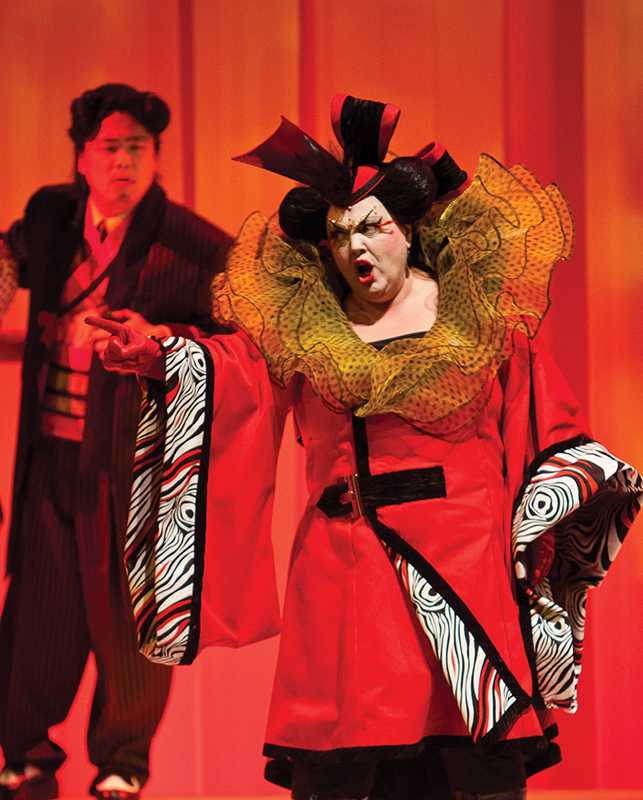We sat 10 rows away from the stage on which my assumptions about opera were being shattered in a clear, bright vibrato. We were rapt by what the human voice could do, what the human body could wear and just how many people could fit on the Jubilee stage. I was 25, and lured there by the Edmonton Opera’s Explorers Club, which offers $20 and, occasionally, free drinks at intermissions to the under-30 crowd. I was hooked, and spent three full seasons in the audience captured by music that gave unique form to human emotion. A YouTube video is no substitute to sitting in the Jubilee as the unmic’ed soloists – both in forte and pianissimo – sing over the orchestra, the 60-member chorus and the breath of 2,400 audience members.
Like so many of its traditional plots, opera faces an epic battle to remain relevant in the YouTube age. Perhaps the most of any art form, opera must overcome the stigma that its spectacle and grandeur are only meant for a privileged elite. “Every opera company has this challenge – reassuring people that they may come in gowns or sweats. We want people to come because they love opera,” says Jelena Bojic, Director of Community Relations with Edmonton Opera.
Some of the elitist stigma has come from the fact that, of all the art forms, opera is the most expensive to produce (the Edmonton Opera’s $4.5-million operating budget produces only three operas a season plus its special events): the costumes are opulent, dozens of people make up a chorus, and a symphony backs up a vocal marathon that can stretch four hours long.
Making the experience financially accessible has been a key objective for Edmonton Opera. For every show, tickets start at $40 and it targets the under-40 crowd with the Explorer and Encore Clubs.
Today, there is also a much broader range of operas for different appetites, from the light (Gilbert and Sullivan’s The Mikado) to traditional (Verdi’s Aida) to modern (Murrell and Estacio’s Filumena, set in the Crowsnest Pass). The medium has also adapted in response to changing cultural expectations. Rarely do today’s operas feature static sopranos singing a 15-minute soliloquy on lost love; they are less staged.
